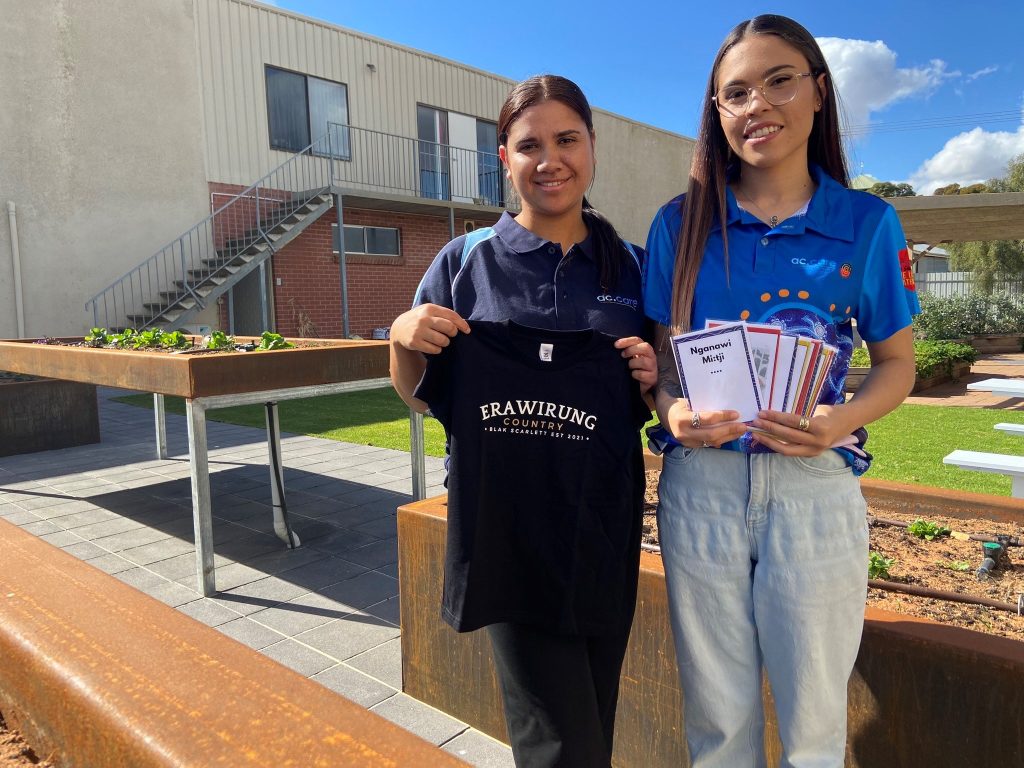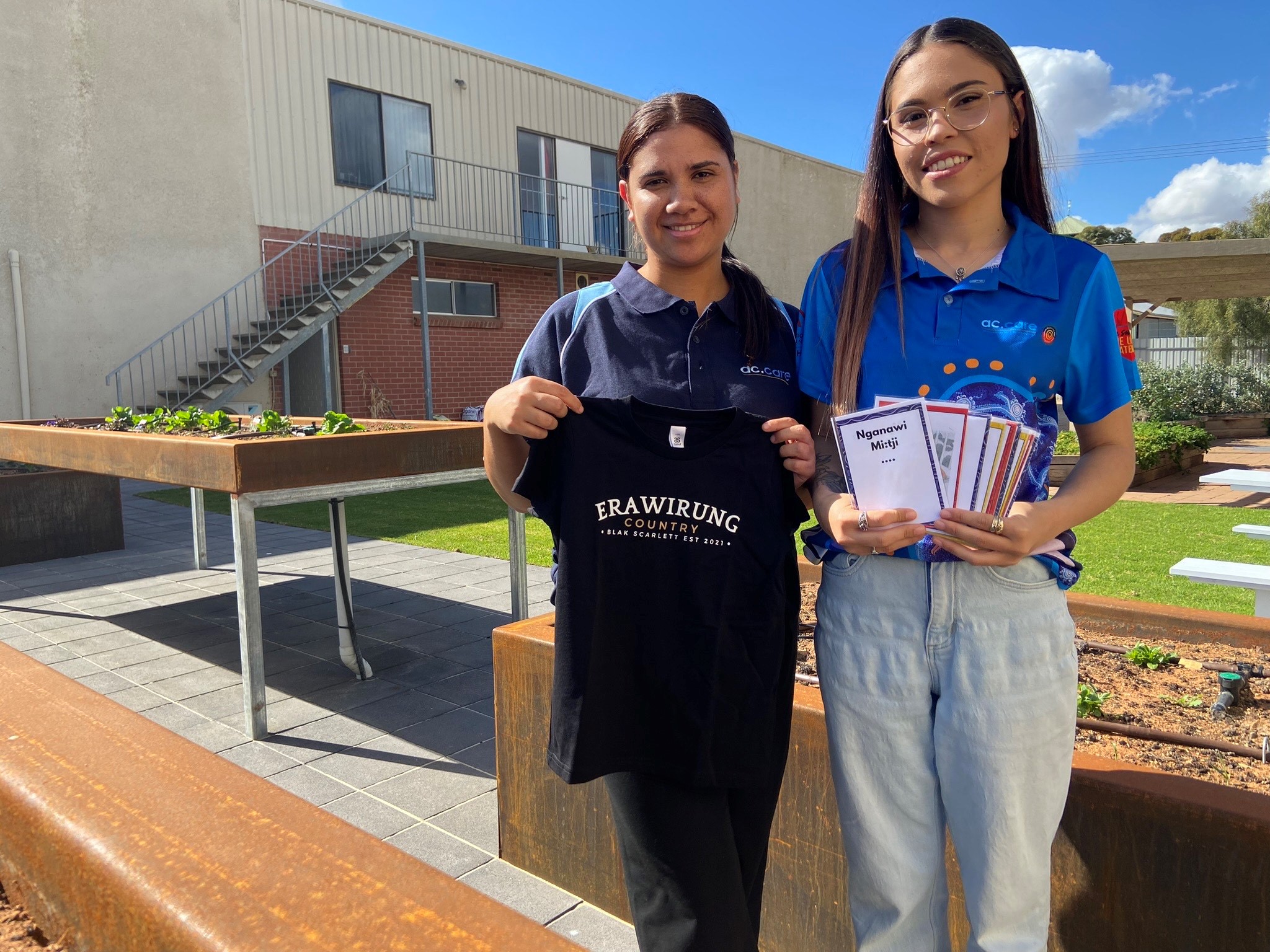TWO proud Ngarrindjeri women have developed resource packages for Indigenous children living in care in the Riverland to create and grow connection to local First Nations culture.
ac.care employees Tyra Motto and Tenesha Abdulla Pickering developed the cultural packs while working together as foster care placement support workers, aiming to support Indigenous children in care and non-Indigenous foster carers in keeping connection to Aboriginal culture strong.
Their innovative work earned them a nomination as finalists at the 2023 Department for Children Protection Awards in the Active Efforts Award, which recognises outstanding active efforts used to implement the Aboriginal Child Placement Principle.
Among the items included in the resource packs are Ngarrindjeri language cards, photographs and interviews with local Elders and an Erawirung Country t-shirt from Riverland business Blak Scarlett.
Tenesha, who still works with children and young people as ac.care’s HIPPY Riverland coordinator, said the pair both identified a cultural gap for children coming into care, as well as the challenges for non-Indigenous carers in making that connection.
“When children come into care, we want to connect them to culture as much as possible,” Tenesha said.
“With our Ngarrindjeri language cards for example, we don’t want the children to lose language because they aren’t surrounded by it.
“We’ve made these in the hopes our carers will teach the kids how the language works and what things mean.
“They’re really basic words, but that could go a long way in the future.”
Tyra said emphasis was placed on using connections in the community to make the resource packs so that the contents had meaning to the children in care and local foster care families.
Continuing to work as a foster care placement support worker with ac.care, Tyra praised Riverland-based foster carers for their willingness to engage in and promote First Nations culture to children in their care.
“We're pretty lucky in the Riverland that we have carers that want to be a part of and immerse themselves in culture, care about Aboriginal kids and want to do the best that they can to learn,” Tyra said.

A key part of the resource packs is the images and stories of local Elders, who were interviewed by Tyra and Tenesha around their upbringing, experience living in care and how it impacted their lives, including a profile on the late Uncle Reggie Black.
“Uncle Reggie grew up in the Stolen Generation so it was good to have that aspect of life shown to the carers so they can understand what it was like for him in that time and how to make sure the kids that they have in care don’t feel the same way about losing culture and not being connected to family,” Tenesha said.
“I think it’s important they know where they come from, who their Elders are and what it means to be on this land and be connected,” Tyra added.
“If they aren’t able to be around their family for whatever reason, I think it’s important they feel some sense of belonging through Aboriginal people in the community.”
While ac. care provides a wide range of family support services to help keep families together, Tyra and Tenesha’s innovative work helps to create the most caring and culturally appropriate placements possible children for children who do enter care in the Riverland.
“Sharing connection to culture is all about helping the kids in care and their carers,” Tenesha said.
Ahead of the Department for Child Protection Awards being announced, Tyra reflected on the Active Efforts Award nomination, highlighting the importance of continuously being innovative and allowing space for new approaches.
“Everyone is under pressure, has key performance indicators and in child protection that is no different – it may be harder,” she said.
“I think if you work within a space that you know there is a gap and work with people who are willing to bridge it, priorities come into play and it was easy to make the decision to take this approach.”

